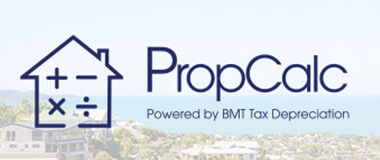Are you a property investor or in the business of renting property?
When an investor owns multiple investment properties that provide their main source of income, it could be assumed they are operating a real estate-style business. However, simply owning numerous investment properties is unlikely to constitute a business operation.

So, what distinguishes someone who has several investment properties from someone who runs a business by owning property? The Australian Taxation Office (ATO) uses eight key indicators to determine the difference. These include:
- Whether the activity has a significant commercial purpose or character
- If the property owner has more than just an intention to engage in business
- Whether the owner has a purpose of profit as well as a prospect of profit from the activity
- If there is repetition and regularity of the activity
- How and if the activity is of the same kind and carried on in a similar manner to that of the ordinary trade in that line of business (real estate management)
- Whether the activity is planned, organised and carried on in a business-like manner
- The size, scale and permanency of the activity
- If the activity is better described as a hobby, form of recreation or sporting activity
The indicators are taken from Tax Ruling 97/11. While this ruling refers to primary production, the indicators also apply to activities of a non-primary producing nature – like property investing. When making this assessment, the property owners involved usually need to request a private tax ruling for their unique scenario.
Lewis and Natasha own a total of 15 rental properties together. Of these, 10 are owned under a ‘joint-tenant’ arrangement where their shares are equal, and they are ‘tenants in common’ for the remaining five properties, owning different percentages.
They both actively manage the properties and spend a lot of time each week doing so, approximately 25 hours each.
They interview prospective tenants, conduct inspections, manage the financial planning, collect all rents and attend to the repairs and maintenance requests themselves. The rent received is their only source of income.
After requesting a private tax ruling, Lewis and Natasha are classed as carrying on the business of renting property. This is demonstrated through:
- The size and scale of their rental property operation
- The intention of their operation
- The time each spends on their rental property activities
- Their personal involvement in the management of the properties
- The business-like manner in which the activities are carried out
Being in the business of renting property has its added benefits, including further tax deductions such as expenses relating to travel, property research, property-specific education like real estate seminars and work-related expenses like mobile phone usage.
This is all in addition to the regular tax deductions available to property investors, from interest repayments and insurances to land taxes and property depreciation.
If the property is considered part of a business operation by the ATO, 2017’s legislation changes to depreciation may not apply. This means the investor won’t be affected by laws that disallow them from claiming depreciation on second-hand plant and equipment assets.
Depending on the situation, the small business entity tax concessions could also be available, including the simplified depreciation rules and temporary full expensing. However, the small business capital gains tax discounts won’t apply as a residential property is not classed as an active asset and the main use is to gain rent.
To maximise depreciation claims and maintain full compliance, BMT take all varying business scenarios into account when preparing depreciation schedules for those in the business of renting property. This is especially important today due to all government stimulus incentives currently available to businesses.



























